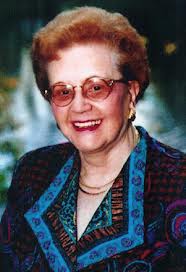Madeleine Leininger
Madeleine Leininger (July 13, 1925 – August 10, 2012) was a pioneering nursing theorist and the founder of transcultural nursing. Her contributions to the field of nursing have been instrumental in understanding the cultural aspects of patient care.
Early Life and Education[edit | edit source]
Madeleine Leininger was born on July 13, 1925, in Sutton, Nebraska. She pursued her initial nursing education at St. Anthony's School of Nursing in Denver, Colorado, where she received her diploma in 1948. Leininger furthered her education by obtaining a Bachelor of Science in Nursing from Benedictine College in Atchison, Kansas, and a Master of Science in Nursing from Catholic University of America in Washington, D.C..
Career and Contributions[edit | edit source]
Leininger is best known for developing the Culture Care Theory, which emphasizes the importance of cultural competence in nursing practice. This theory is a cornerstone of transcultural nursing, a field that Leininger founded to address the cultural factors influencing patient care.
Culture Care Theory[edit | edit source]
The Culture Care Theory posits that cultural beliefs, values, and practices significantly impact health and illness. Leininger introduced the concept of cultural competence, which involves understanding and integrating a patient's cultural background into their care plan. This approach aims to provide culturally congruent care, which can improve patient outcomes and satisfaction.
Transcultural Nursing[edit | edit source]
Leininger established transcultural nursing as a formal area of study and practice. She emphasized the need for nurses to be culturally aware and sensitive to the diverse backgrounds of their patients. This specialty focuses on comparative cultural care, health, and illness patterns of individuals and groups with respect to their cultural values and beliefs.
Publications and Legacy[edit | edit source]
Leininger authored numerous books and articles on transcultural nursing and Culture Care Theory. Some of her notable works include "Culture Care Diversity and Universality: A Theory of Nursing" and "Transcultural Nursing: Concepts, Theories, Research & Practice."
Her work has had a lasting impact on the field of nursing, influencing both education and practice. Leininger's theories continue to be taught in nursing programs worldwide, and her emphasis on cultural competence remains a critical component of modern nursing care.
Awards and Honors[edit | edit source]
Throughout her career, Leininger received numerous awards and honors for her contributions to nursing and healthcare. She was inducted into the American Academy of Nursing and received honorary doctorates from several universities.
Death[edit | edit source]
Madeleine Leininger passed away on August 10, 2012, leaving behind a legacy of innovation and dedication to the field of nursing.
See Also[edit | edit source]
References[edit | edit source]
External Links[edit | edit source]
Search WikiMD
Ad.Tired of being Overweight? Try W8MD's physician weight loss program.
Semaglutide (Ozempic / Wegovy and Tirzepatide (Mounjaro / Zepbound) available.
Advertise on WikiMD
|
WikiMD's Wellness Encyclopedia |
| Let Food Be Thy Medicine Medicine Thy Food - Hippocrates |
Translate this page: - East Asian
中文,
日本,
한국어,
South Asian
हिन्दी,
தமிழ்,
తెలుగు,
Urdu,
ಕನ್ನಡ,
Southeast Asian
Indonesian,
Vietnamese,
Thai,
မြန်မာဘာသာ,
বাংলা
European
español,
Deutsch,
français,
Greek,
português do Brasil,
polski,
română,
русский,
Nederlands,
norsk,
svenska,
suomi,
Italian
Middle Eastern & African
عربى,
Turkish,
Persian,
Hebrew,
Afrikaans,
isiZulu,
Kiswahili,
Other
Bulgarian,
Hungarian,
Czech,
Swedish,
മലയാളം,
मराठी,
ਪੰਜਾਬੀ,
ગુજરાતી,
Portuguese,
Ukrainian
Medical Disclaimer: WikiMD is not a substitute for professional medical advice. The information on WikiMD is provided as an information resource only, may be incorrect, outdated or misleading, and is not to be used or relied on for any diagnostic or treatment purposes. Please consult your health care provider before making any healthcare decisions or for guidance about a specific medical condition. WikiMD expressly disclaims responsibility, and shall have no liability, for any damages, loss, injury, or liability whatsoever suffered as a result of your reliance on the information contained in this site. By visiting this site you agree to the foregoing terms and conditions, which may from time to time be changed or supplemented by WikiMD. If you do not agree to the foregoing terms and conditions, you should not enter or use this site. See full disclaimer.
Credits:Most images are courtesy of Wikimedia commons, and templates, categories Wikipedia, licensed under CC BY SA or similar.
Contributors: Prab R. Tumpati, MD

